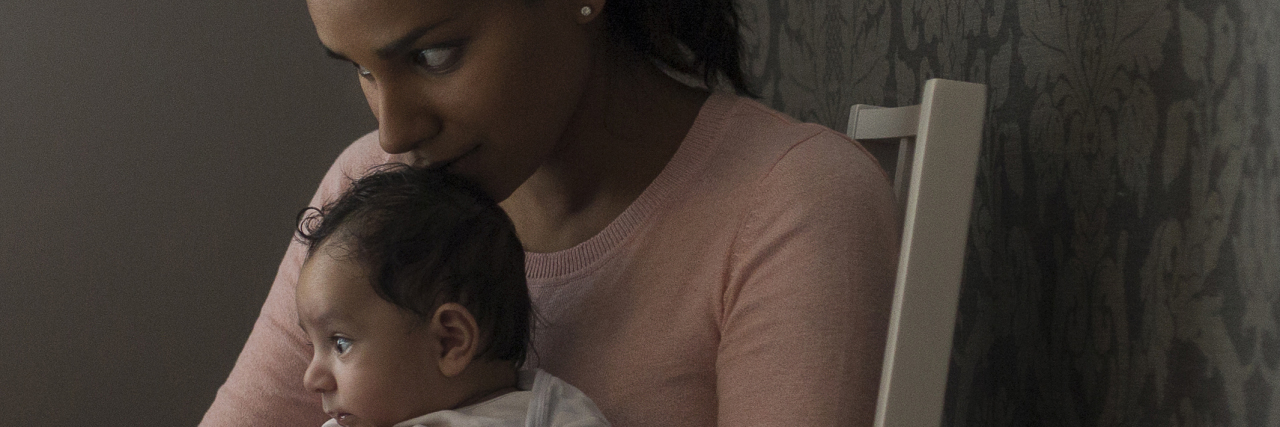The Struggle to Find Balance When Your Child Is Rare
Balance. It’s something I’ve always had trouble with, literally and figuratively. As the mom of a medically complex child recently diagnosed with mitochondrial depletion syndrome after nearly four years of searching for a diagnosis, balance has become an even bigger concern. Maintaining the right balance of self-care versus the outpouring of care needed is a small struggle, though there are a myriad of others.
One such thing that weighs on me is finding the right balance of empowerment versus protection. As part of what my girl deals with, she’s prone to falls and fracturing bones. I want to encourage her to feel like she can accomplish what she sets her mind to, but I also want her to be cognizant of her physical limitations and learn how to regulate her own safety. This is much easier said than done, and I’ll forever be haunted by the sound of my daughter’s thumb breaking as she attempted to do a handstand like the big kids she was trying to emulate.
As kindergarten begins soon, my hope is that her self-awareness will continue to grow and so will her self-confidence. I appreciate when friends recognize this struggle of empowerment versus protection, yet they still invite us to various places or events with bonus points for proposing ideas as to how we can best adapt the situation to make it a success for everyone. (This comes as no surprise, but these are also the same parents who have done an excellent job of discussing disabilities with their children and teaching ways to be inclusive.)
Another thing that weighs on me is how much to share versus needing to protect. A warrior mama who I adore discussed how we need to let go of privacy concerns when it comes to sharing information about our rare kids, especially those with ultra-rare genetic variants (like my daughter’s recent whole genome de novo KDM1A finding). I fully believe in this kind of boldness as it creates parent advocates and unites them. Sharing information helps to connect with researchers who have the ability to change our future. I’m encouraged by stories of parents who have become the ultimate advocates such as the Might and Wilsey families who formed their own coalition to fight for their kids and Karen Aiach who started her own biotech company to save her child’s life.
I want to be transparent when it comes to our struggles, though I’ve also been advised to give thought and pause about what we share on social media, medical blogs, etc. as there can be negative consequences. To further complicate matters, false medical child abuse claims have been on the rise especially in cases where a parent might not agree with a doctor’s recommendations or request to be transferred to a different hospital. Don’t get me wrong—there is a real need for investigations as there are some sick individuals who manipulate and exploit which must be stopped. I’m in awe of the parents who share everything so openly and paint such a true portrait of what the day-to-day aspects of living with mitochondrial disease is like, though I’m personally still trying to find the right balance as I work on evolving into the best possible advocate.
Allow me to be real and vulnerable here for a moment. My daughter’s condition is life-threatening, and the balance pendulum swings wildly between denial and fear. When my daughter gets ill, we must take quick action to prevent decompensation. I’ve had this head knowledge, of course, and have never wanted to be one to overreact, but the fear was drilled into me as an online friend’s daughter (who was the same age and had a similar medical history to my girl) recently died during a bout of illness. And how I think of Charlie Gard! I became aware of his case during my daughter’s quest for a diagnosis, and I would later learn after his passing that my daughter shared the same diagnosis — though her genetic link is not as clear. Charlie would’ve been 2 years old this week, and while he is gone, his legacy lives on internationally. The Charlie Gard Foundation brings hope. We need this hope.
I previously connected with a mom at an event as our kids both have bone marrow complications. “When will your daughter’s treatments end?” she asked. The harsh reality sank in, as there are no treatment options for mitochondrial disease. We have no idea about our daughter’s rate of progression, though we vow to fight as hard as we can. None of us are guaranteed tomorrow, and I certainly don’t want to borrow tomorrow’s troubles. The scales have tipped in ways that have nearly broken me and ways that I’ve been reduced to the point of sobs because of the kindness of loved ones and even strangers. My faith, even if it feels smaller than a mustard seed at times, helps me get through this see-sawing of this new life post-diagnosis.
I will forever cling to hope and the possibility for miracles.

